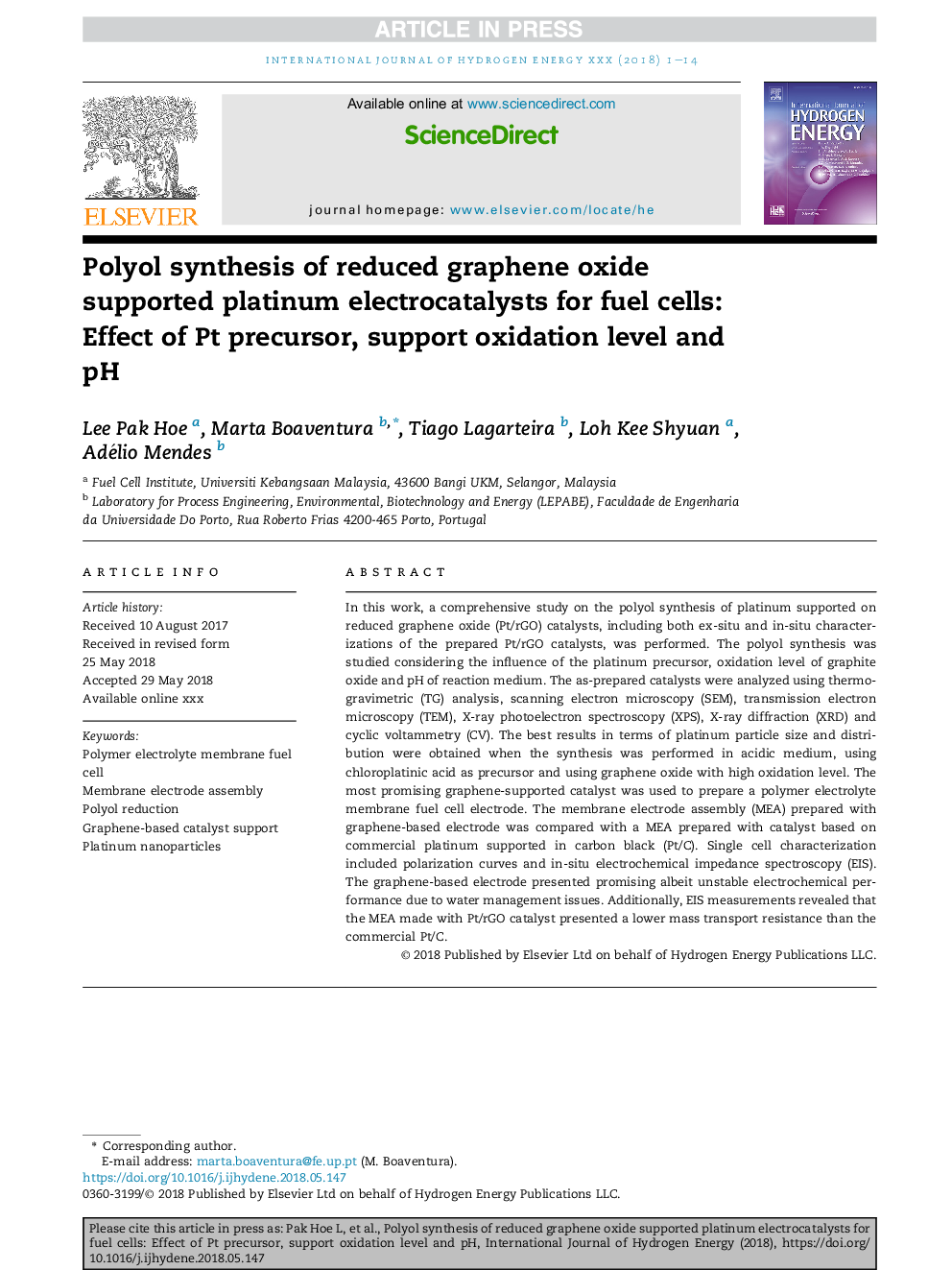| Article ID | Journal | Published Year | Pages | File Type |
|---|---|---|---|---|
| 8948320 | International Journal of Hydrogen Energy | 2018 | 14 Pages |
Abstract
In this work, a comprehensive study on the polyol synthesis of platinum supported on reduced graphene oxide (Pt/rGO) catalysts, including both ex-situ and in-situ characterizations of the prepared Pt/rGO catalysts, was performed. The polyol synthesis was studied considering the influence of the platinum precursor, oxidation level of graphite oxide and pH of reaction medium. The as-prepared catalysts were analyzed using thermo-gravimetric (TG) analysis, scanning electron microscopy (SEM), transmission electron microscopy (TEM), X-ray photoelectron spectroscopy (XPS), X-ray diffraction (XRD) and cyclic voltammetry (CV). The best results in terms of platinum particle size and distribution were obtained when the synthesis was performed in acidic medium, using chloroplatinic acid as precursor and using graphene oxide with high oxidation level. The most promising graphene-supported catalyst was used to prepare a polymer electrolyte membrane fuel cell electrode. The membrane electrode assembly (MEA) prepared with graphene-based electrode was compared with a MEA prepared with catalyst based on commercial platinum supported in carbon black (Pt/C). Single cell characterization included polarization curves and in-situ electrochemical impedance spectroscopy (EIS). The graphene-based electrode presented promising albeit unstable electrochemical performance due to water management issues. Additionally, EIS measurements revealed that the MEA made with Pt/rGO catalyst presented a lower mass transport resistance than the commercial Pt/C.
Keywords
Related Topics
Physical Sciences and Engineering
Chemistry
Electrochemistry
Authors
Lee Pak Hoe, Marta Boaventura, Tiago Lagarteira, Loh Kee Shyuan, Adélio Mendes,
